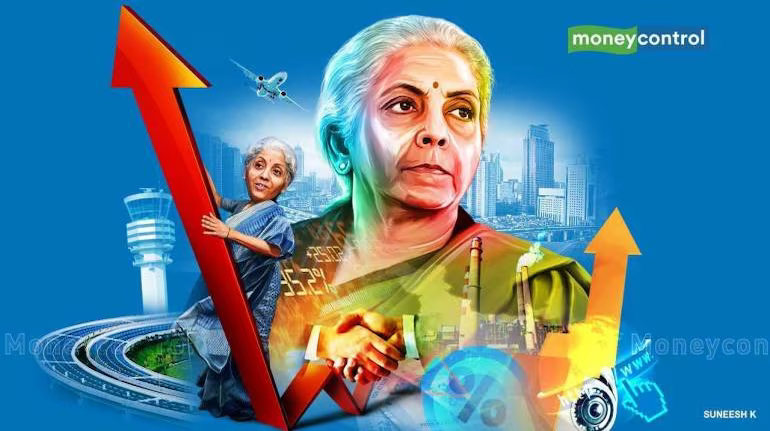Control, Continuity, and Confidence – these 3Cs were three key takeaways from the Interim budget 2024. There was Control on government spending through a lower fiscal deficit and government borrowing, Continuity of tax rates on personal income tax and indirect taxes, and Confidence that the government is going to get re-elected back in the national elections later this year demonstrated through not undertaking populist measures.
The same 3Cs are excellent principles to use when working on your financial plan as well – control your deficits by managing expenses and taking loans only where necessary, continuing with your investment strategy irrespective of market volatility, and confidence in achieving your financial goals by reviewing the progress of your financial goals and investment portfolio regularly.
The interim budget stayed true to its name, by not trying to make very significant changes.
Here is its impact on your money box.
Your income – There are no tax slab or surcharge changes and any further reduction may need to wait for the full budget later this year. You would remember that the new tax regime had become the default tax regime from this year, so please ensure that you opt for the old tax regime which enables deductions, in case that is more favorable for you. Additionally, any tax saving investments under Section 80D like insurance premium payments or investments in Equity Linked Savings Scheme (ELSS ) or PPF need to be completed for this financial year as we are now in the last quarter.
With medical costs having risen sharply, please ensure that your family medical insurance coverage is sufficient, and take advantage of section 80D for health insurance premium payments. The National Pension Scheme (NPS) has become more attractive outside this Budget, for your long-term retirement savings with greater flexibility of moving monies across managers and asset classes, modes of withdrawals, etc, and continues to be a great choice in planning for your retirement.
The additional tax benefits available both for employer contributions and self contributions, make it even more attractive. There is also an impetus to domestic tourism which could mean that your LTA could be used domestically, giving you some tax efficiency as well even as you spend quality time with family.
Your Expenses – One of the big successes for India over the last few years, has been the stability in inflation within the band of 4% plus minus 2%. This has a very significant impact on planning for your finances, as the corpus required for long-term goals like retirement can get materially impacted if inflation remains high. The glide path towards fiscal consolidation surprised positively in the Budget, being targeted at 5.1% of GDP, which is much lower than current levels of 5.8%. This should enable inflation to continue to be sanguine. It is crucial though to ensure that you keep your lifestyle inflation under control, as one of the challenges that we are starting to see for many families, is the constant lifestyle upgrade concerning their discretionary spends which means their actual annual inflation rate is much higher than the 6% upper band.
Your investments – The lower fiscal deficit, as well as lower gross and net market borrowing proposed by the government, has meant that both inflation and interest rates could be well controlled. With the view that interest rates both in India and the developed world are close to peaking out and may be headed downwards later this year, it may be a good time to add some duration into portfolios by buying into longer-term government securities or g sec funds. Additionally, locking in a part of your monies towards longer-term debt instruments like hold-to-maturity debt funds or deposits could be considered. The equity markets did not have any positive or negative surprises and are therefore likely to continue to be driven by global interest rates and valuation concerns that exist, especially concerning small and midcap stocks and funds. Be careful of that segment.
Your loans – With interest rates likely to have peaked out, your floating rates of interest should start heading down by the end of the year. However, interest rates are still high, and using your bonuses and surpluses to prepay continues to be a good idea even after this Budget.
An easing of small value disputes of taxpayers with the tax department has been proposed wherein for disputes until 2009-10, the government will withdraw disputes for outstanding tax demand of up to Rs 25,000. Also, the outstanding demand up to Rs 10,000 would be waived off for disputes from the financial year 2010-11 to 2014-15. So if you are on the list, this is one less item for you to spend energy on.
We will look out for more changes in the Budget later this year – till then focus on your 3Cs.
This article was first published on Moneycontrol
Disclaimers
Investments in securities market are subject to market risks. Read all the related documents carefully before investing.
Registration granted by SEBI, membership of BASL and certification from National Institute of Securities Markets (NISM) in no way guarantee performance of the intermediary or provide any assurance of returns to investors.
The information is only for consumption by the client and such material should not be redistributed.
The securities quoted are for illustration only and are not recommendatory.


Very informative. Explained in very simple language.
Thank you for your encouraging words